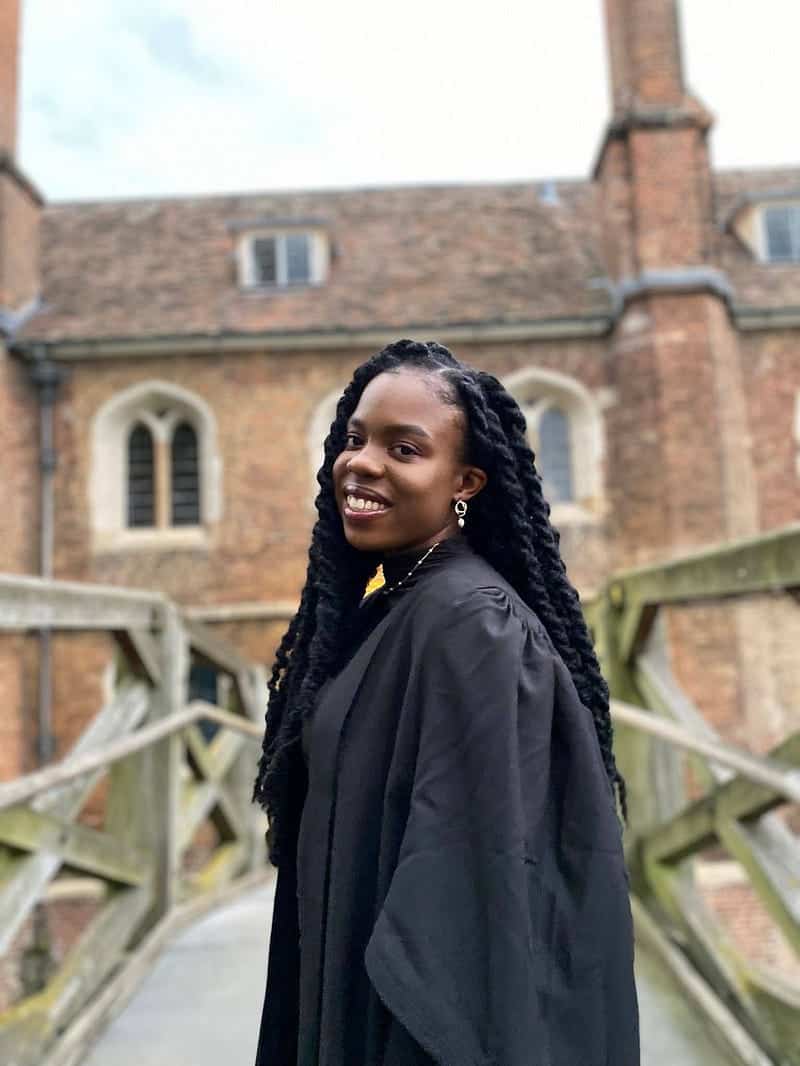VCSIA Winner — Oluwatomi Akingbade
My journey starts similar to that of most scientists; in that I chose science because I was the kid who always asked “why”. I questioned why water boiled; why people behaved the way they did; and why I had to go to sleep everyday instead of staying up all night reading. My story begins to
differ from others when we introduce the fact that I am a Black female who had no real idea of what it meant to have a career in science.

During my undergraduate degree, my passion for equality and representation in the science industry led me to creating the Black Women in Science (BWiS) Network. The Network started as a social media account, that later became a website, and today stands as a global networking platform that works towards giving Black women the necessary platforms and opportunities to further their careers and interests in Science-related industries. Since its launch, BWiS Network has grown to be a safe space for hundreds of Black women in Science; a global platform providing networking opportunities and career webinars throughout the year; as well as a contributing voice to legislative movements towards equity in Science.
Four years since the launch of BWiS, I remain passionate about improving access opportunities and education in STEM. I aspire to continue to create spaces that amplify these women and connect them with other communities. I want the value and plight of these scientists to be acknowledged and appreciated by all. In short, I want equity.
I utilize my role as Founder of this Network to highlight the realities of being a young Black scientist in the Science industry. I have also given talks to the Society of Experimental Biology, the Sanger Institute and featured on panels for the Academinists podast; the Race and Identity Talks at King’s College London; and the Women in Neuroscience panel at the British Neuroscience Association. I was also a contributor to the APPG Inquiry into Equity in the STEM Workforce. This year I look forward to speaking at the Babraham Institute and at the 6th BME Early Careers Conference. In addition to this, I proudly serve as an advisory board member of the Sanger Excellence Fellowship and as an advisor to the new Women in Neuroscience UK platform.
The highs in my volunteer role have been many. It is difficult to quantify the reality of changing people’s lives and improving their access to opportunity. Some notable occasions have included our mentorship with Quantum Black which has seen six Network Members (we are currently planning our next cohort); our study groups for Black women in Science-based subjects and our
monthly safe spaces for Black women in Science. The role does not come without challenges. One of the greatest challenges is that I am often the ‘only one in the room’. On a more logistical note, finances and business management have been challenging: I have grown a global network that now reaches thousands of people across the globe, almost solely and , and it has been predominantly run by me and supported by my personal finances.
I acknowledge that being able to get involved in extracurriculars is a huge privilege. For those who are able, I believe that it is massively important to get involved in extracurricular opportunities for that very reason. It is a privilege. Many people wish they could volunteer their time to causes they are passionate about, but they have not been afforded the luxury of access,
time and/or capacity.
For those who can, it is important to engage with social causes whilst at university to gain an insight into the world that exists outside of the bubble of university life. It is for this reason that I started the Black Women in Science Network. Getting involved with wider communities makes
you aware of the privileges you do have, and how you can impact others.
Academia tends to reward an individualist approach to life, getting involved in extracurriculars is a fantastic way to acknowledge that the world is bigger than you and that you have something to offer it. Acknowledgement of this award would mean a lot to me personally; in that it will be a kind
reminder that my work is not in vain. For the Network, the support of this award will mean that we are able to fulfil our plans of upscaling our outputs and reaching more people worldwide.
Ultimately, receipt of this award would testify to the fact that the University of Cambridge acknowledges the experiences of Black women in science; seeking not only to support us but celebrate us too.
